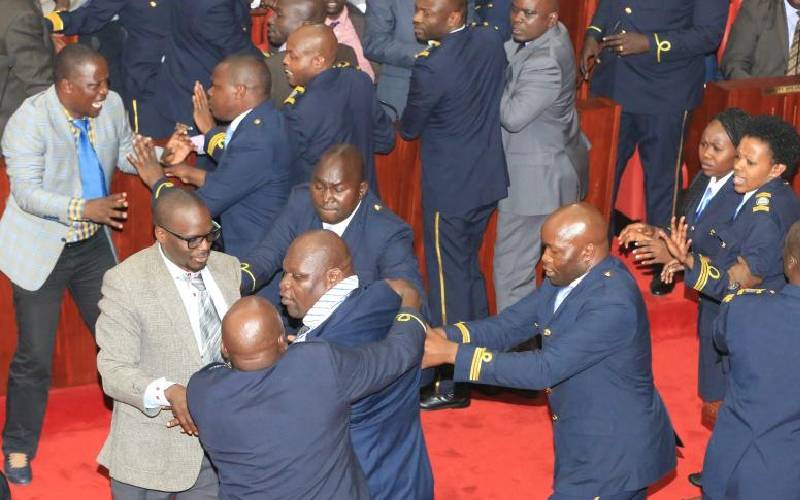×
The Standard e-Paper
Fearless, Trusted News

Nairobi County MCAs in a scuffle during an impeachment motion against former governor Evans Kidero. [File, Standard]
Confusion continues to deepen on whether MCAs seeking parliamentary seats in the August 9 elections are required to resign by today’s deadline.